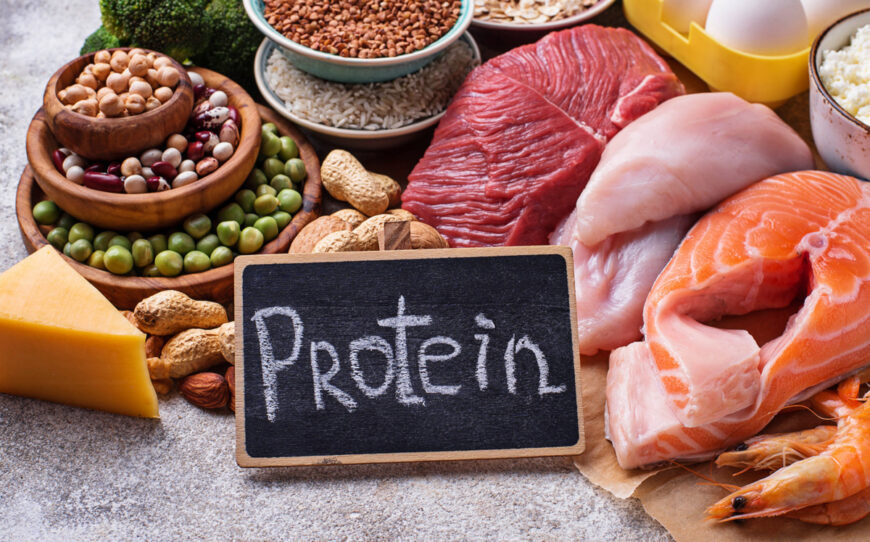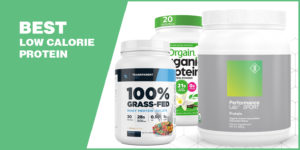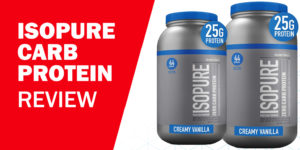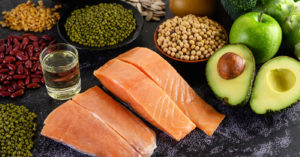Our Protein Calculator provides personalized protein intake recommendations to promote optimal health and achieve fitness goals efficiently. It caters to all—from children, highly active individuals, pregnant or nursing women to those managing conditions like kidney disease, liver disease, or diabetes, where protein consumption is crucial.
What is Protein?
Proteins are essential macronutrients, along with fats and carbohydrates, that provide energy to the human body. They play a crucial role in cell structure, organ function, and regulation. Comprised of amino acids, proteins serve as the building blocks for body tissues.
There are 20 different amino acids, with the sequence determining a protein’s structure and function. While the body can synthesize some amino acids, there are 9 essential amino acids that must be obtained from the diet. Foods containing all essential amino acids are known as complete protein sources, including both animal (meat, dairy, eggs, fish) and plant-based options (soy, quinoa, buckwheat).
Proteins serve various functions in the body, including antibody production for defense against foreign particles, enzyme activity in chemical reactions, messenger transmission for maintaining body processes, structural components for cell building, and transport/storage of molecules.
Given the vital roles of proteins, it is crucial to ensure adequate nutrition to maintain optimal protein levels in the body.
In this article, we will explore the significance of protein as an essential macronutrient. We will discuss its role, sources, and the importance of meeting protein requirements for overall health and well-being.
Importance of Protein
Muscle Building
Protein is essential for muscle growth and repair. When you engage in strength training or resistance exercises, your muscles undergo microscopic damage. Protein helps repair these damaged muscle fibers, leading to muscle growth and increased strength. Adequate protein intake is crucial to support these processes.
Weight Loss
Protein plays a significant role in weight loss and weight management. It helps increase satiety, reduce appetite, and prevent muscle loss during calorie restriction. High-protein diets have been shown to boost metabolism, reduce cravings, and promote fat loss while preserving lean muscle mass.
How Much Protein Do You Need?
Determining your protein needs depends on various factors such as age, sex, weight, activity level, and goals. Using a protein calculator can simplify this process and provide you with a personalized protein recommendation. By entering your details, such as age, weight, and activity level, the calculator estimates your daily protein requirement.
Our protein calculator is a useful tool that helps you determine your protein needs accurately. It takes into account your individual characteristics and goals to calculate the optimal protein intake for your body. Online protein calculators are easily accessible and provide a convenient way to assess your dietary requirements.
Protein Recommendation per RDA
| Age | Protein Needed (grams/day) |
| Age 1 – 3 | 13 |
| Age 4 – 8 | 19 |
| Age 9 – 13 | 34 |
| Age 14 – 18 (Girls) | 46 |
| Age 14 – 18 (Boys) | 52 |
| Age 19 – 70+ (Women) | 46 |
| Age 19 – 70+ (Men) | 56 |
High-Protein Foods
When aiming to meet your protein requirements, it’s essential to include a variety of high-protein foods in your diet. Animal-based sources like lean meats, poultry, fish, eggs, and dairy products are excellent choices. Plant-based sources such as legumes, tofu, tempeh, quinoa, and chia seeds are also rich in protein. Incorporating a mix of both animal and plant-based proteins can provide a well-rounded protein intake.
Meat/Dairy Examples (Randomized):
- Milk
- Chicken breast
- Lean beef
- Tuna
- Greek yogurt
- Eggs
- Cottage cheese
- Fish
- Shrimp
- Turkey breast
Vegan/Plant-based Examples (Randomized):
- Hemp and chia seeds
- Quinoa
- Peanut butter on toast or other bread
- Hummus and pita
- Soy products (tofu, tempeh, edamame beans)
- Spirulina
- Buckwheat
- Beans and rice
Proteins can be sourced from both animal-based and plant-based options. Animal-based sources include chicken breast, lean beef, tuna, Greek yogurt, eggs, cottage cheese, fish, shrimp, and turkey breast. On the other hand, plant-based sources such as hemp and chia seeds, quinoa, peanut butter, hummus, soy products (tofu, tempeh, edamame beans), spirulina, buckwheat, and beans with rice are excellent choices.
It’s important to note that while animal-based proteins are typically complete proteins, providing all essential amino acids, plant-based proteins may require combining different sources to obtain a complete amino acid profile. Including a variety of protein-rich foods in your diet ensures you get a balanced intake of essential amino acids.
Protein Supplements
Protein supplements are popular among individuals looking to increase their protein intake conveniently. They come in various forms, with the most common being whey protein and plant-based protein powders.
Whey Protein
Whey protein is derived from milk and is quickly absorbed by the body. It is a complete protein containing all essential amino acids and is particularly beneficial for muscle growth and recovery.
Plant-Based Protein
Plant-based protein supplements are suitable for those following a vegetarian or vegan diet. They are typically made from sources like peas, brown rice, hemp, or soy. Plant-based protein powders provide a viable alternative for individuals who prefer non-animal protein sources.
Protein Timing
The timing of protein intake can also influence its effectiveness. Two crucial periods for protein consumption are pre-workout and post-workout.
Pre-Workout Protein
Consuming protein before a workout can enhance muscle protein synthesis, providing the necessary amino acids for energy and recovery during the exercise session.
Post-Workout Protein
Consuming protein after a workout is crucial for muscle repair and growth. It helps replenish glycogen stores, reduces muscle soreness, and stimulates muscle protein synthesis.
FAQs
Is it possible to consume too much protein?
Consuming excessive protein can strain the kidneys and may lead to potential health issues. It’s important to stick to the recommended protein guidelines based on your individual needs.
Can I meet my protein requirements with a plant-based diet?
Yes, a well-planned plant-based diet can provide adequate protein. Combining different plant-based protein sources throughout the day ensures you get a variety of essential amino acids.
Should I consume protein immediately after a workout?
While immediate post-workout protein consumption is beneficial, the overall protein intake throughout the day is more important. Focus on meeting your daily protein goals rather than solely relying on post-workout protein.
Are protein supplements safe to consume?
Protein supplements are generally safe when consumed as directed. However, it’s essential to choose reputable brands and consult with a healthcare professional if you have any underlying health conditions.
How long does it take to see results from increasing protein intake?
The time it takes to see results can vary depending on various factors such as individual metabolism, exercise routine, and overall diet. Consistency is key, and results will come with time and dedication.
Conclusion
Protein is an essential nutrient that plays a vital role in various bodily functions. Understanding your protein needs and using a protein calculator can help you optimize your intake for muscle growth, weight management, and overall health. Incorporate high-protein foods and consider protein supplements when necessary. Remember to time your protein intake strategically around your workouts for maximum benefits.









